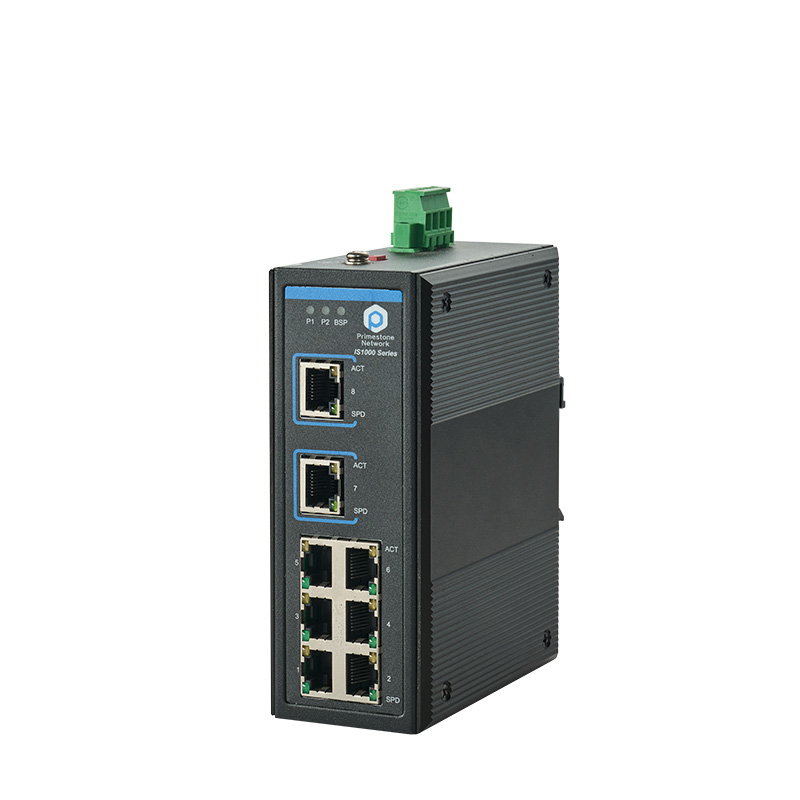Industrial Switch is also called industrial Ethernet switch, which is an Ethernet communication device applied to Industrial Internet and industrial digital intelligent control field. Because of the standard TCP/IP network adopted, it has good openness, wide application, high performance and high reliability, and Ethernet communication technology has become the main communication standard in industrial control field.
Smart network switch is a powerful network switch with more powerful and flexible network management functions. Smart network switches are usually able to achieve data flow control, virtual local area networks (VLANs), quality of service (QoS), and other characteristics through intelligent network management technology. They can provide different quality of service guarantees for different applications and data flows.
Compared with general network switches, smart network switches can better ensure network performance and security. They can usually also support more complex network topologies, including aggregated links, multicast, and virtual networks. Smart network switches can also provide more comprehensive network monitoring and troubleshooting functions, which helps improve the reliability and stability of the network.
Smart network switches also typically have flexible configuration options, allowing administrators to make corresponding configurations and adjustments according to the needs of specific application scenarios, in order to achieve more flexible and efficient network management. At the same time, smart switches can also fully utilize various communication technologies, such as IPv6, IP Multicast, and Quality of Service.

Industrial switches and smart network switches are both types of network switches used to achieve communication between devices within a local area network. They have some differences and connections in design and functionality.
Differences between industrial switches and smart network switches:
Design differences: Industrial switches are mainly designed for applications in industrial environments, usually made of metal materials that can withstand extreme environments such as high temperatures, humidity, and vibrations; Smart network switches, on the other hand, are mainly designed for office and home environments, typically using plastic shells, with a greater emphasis on aesthetics and portability.
Different functions: Industrial switches mainly focus on providing more stable and reliable network connections, with ring network structure, photoelectric isolation, electromagnetic compatibility and other characteristics; Smart network switches, on the other hand, place greater emphasis on network management and ease of use, typically possessing functions such as QoS, VLAN, and flow control.
Different environments: Industrial switches are mainly used in industrial fields, such as manufacturing, transportation, and power industries; Smart network switches are mainly used in environments such as ordinary homes, small and medium-sized enterprises, and offices.
Industrial switch and smart network switch contact:
Universality of switches: Industrial switches and smart network switches belong to network switches, both of which have the function of achieving communication between network devices.
Technical commonness: Industrial switches and smart network switches both use similar forwarding technologies and routing protocols, such as static routing, dynamic routing and Network Address Translation.
Application crossover: Industrial switches and smart network switches often intersect in terms of application, such as intelligent switches being widely used in certain industrial environments.
In short, industrial switches and smart network switches are both types of network switches, which have some differences in design, functionality, and application, but also have certain connections and intersections.
Contact: sales
Phone: 18688787693
E-mail: sales@hsindustrialswitch.com
Add: Room 608, Building B,GaoXinQi TEC Park,Baoan District, ShenZhen,China